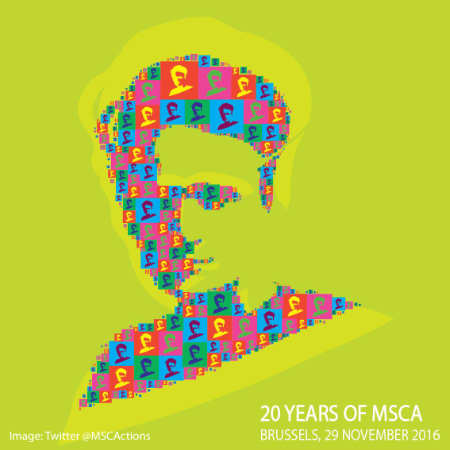20 years of Marie Skłodowska-Curie Actions

The European Union is celebrating 20 years of its Research Fellowship Programme. Since 1996, the Marie Skłodowska-Curie Actions (MSCA) have provided grants to train excellent researchers at all stages of their careers - be they doctoral candidates or highly experienced researchers – while encouraging transnational, inter-sectoral and interdisciplinary mobility. The programme is named after the double Nobel Prize winner Marie Skłodowska-Curie to honour and spread the values she stood for. To date, 98 000 researchers have benefited from the programme – among them five Nobel laureates and an Oscar winner.
One of the MSCA flag schemes are European Training Networks which provide high quality doctoral-level training in and outside academia. These networks bring together universities, research centres and companies from different countries worldwide to train a new generation of researchers. The funding boosts scientific excellence and business innovation, and enhances researchers’ career prospects through developing their skills in entrepreneurship, creativity and innovation.
oPAC as a European Training Network has provided training to 23 young researchers in the optimization of particle accelerators. The network offered an interdisciplinary and inter-sectoral environment for the fellows who were hosted at several institutions across Europe and worked on joint research projects addressing challenges in the optimization of particle accelerators. The fellows also benefited from a ‘complementary skills training’ concept which was implemented through a series of schools and workshops and an active programme of outreach and dissemination.
The Marie Skłodowska-Curie Actions have set the benchmark for attracting and retaining the most talented researchers. By making researchers mobile and encouraging cooperation, the programme boosts knowledge transfer and contributes to strengthening Europe’s research and innovation capacity.